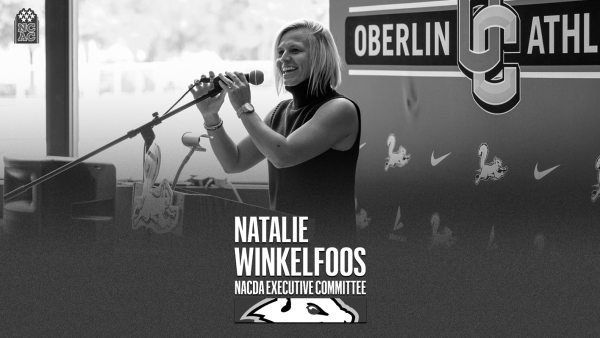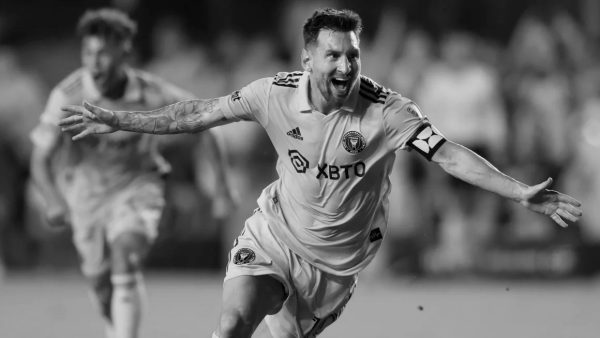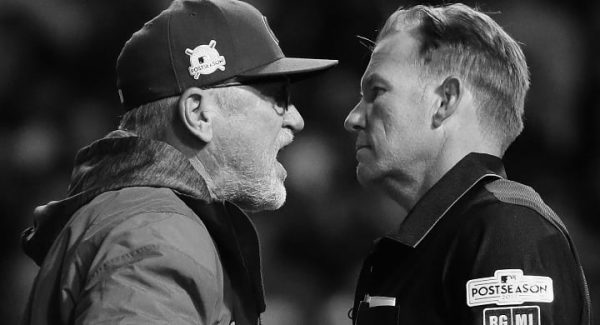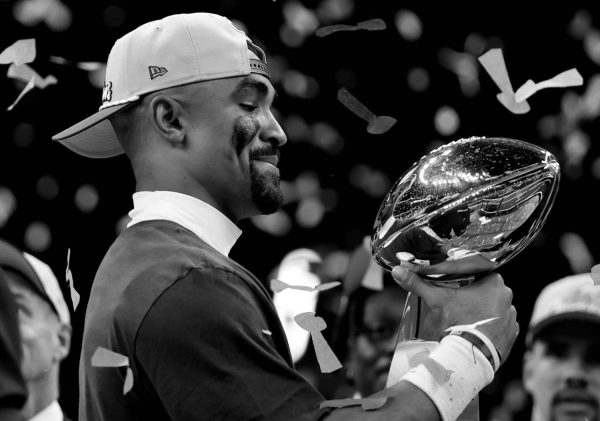From the Locker Room to the Copy Room
Competing as a track athlete for the past eight years has heavily shaped both the way I navigate the space around me and way others regard me.
Coming from a public California high school of more than 2,700 students, participating in athletics as either a competitor or spectator was a communal activity. People showed up at games and community members made the drive to support their classmates, friends, and loved ones in competition.
Athletes on campus were not only committed to being students and high academic achievers, but also to their teams, winning accolades for their high school, and sacrificing more than 15 hours a week for their team.
Several-hour car rides to meets, long and difficult practices, carpools home, and coaches who acted not only as role models and mentors but also family, shaped a track experience that, for me, was one of the few things that allowed me to make it through high school amidst the violence and mental illness occurring in my personal life. Track and athletics were among the biggest drivers of my existence in high school.
So when I arrived in Oberlin three years ago for first-year orientation, the experience was jarring.
Realizing how resented athletics can be at Oberlin was a shock I had not anticipated. Over orientation week, I cycled through several different groups of first-years, always feeling small and compelled to disappear when conversations in Stevenson Dining Hall about favorite television shows turned to belittling comments about athletes and athletics whenever someone in the group spotted another student wearing a varsity jacket.
Nearly every day that week I heard something to the effect of: “‘I came to Oberlin because I thought we didn’t have athletics,’ ‘I hate jocks,’ ‘Isn’t Oberlin D3? Doesn’t that mean they suck?’” and when I shared that I was an athlete, I was met with incredulous responses like ‘really’ and ‘why would you ever.’
To think that sharing something so integral to my existence could instantly distance me from people I had never met, who I thought I was bonding with, was upsetting. And while some students at Oberlin have genuinely valid reasons for disliking their athlete peers, the vast majority of students who expressed their dislike of athletes to me my first year rooted their opinions in biased judgements and unfounded generalizations. All year, I heard comments about how student-athletes only got into Oberlin because they played sports, that our grades were unfairly inflated, and that we refused to attend speakers series and workshops, choosing instead to focus only on sports. I knew that, at Oberlin, this was not the case.
Being an athlete both in high school and college, I’ve had to make sacrifices in how my time is used. High school demanded my commitment from 6 a.m. to 3 p.m., followed by about two hours of track practice daily, followed by one to three hours of yearbook work, and all-day track meets on Saturdays. By the time I got home most days, it was dinner time or later, leaving barely enough time to complete daily chores and complete homework from a full schedule of AP courses before falling asleep after midnight.
Unlike my public high school, attending college isn’t free, and paying my own way through this expensive institution through a series of time-intensive jobs has forced me to make even more sacrifices than in high school.
And I am not a special case. Numerous athletes on campus hold leadership positions, jobs, and other interests on campus aside from athletics that force them into severe time constraints. Athletes go to a D3 school like Oberlin to have the opportunity to compete in their sport alongside passionate teammates while simultaneously getting a high-quality interdisciplinary education alongside focused classmates.
This year is my last at Oberlin, but also the first in eight years that I will not be competing as a track athlete. Because of my workload, I felt I was unable to commit the time and energy to track that I wanted to while also paying my term bill on time (and let me dispel this old myth now: athletes at D3 institutions do not, in fact, get paid to play or receive any type of scholarship for being an athlete. The sole motivation to be a D3 athlete is the love of the sport).
My hope, however, is that by working as one of the Sports Editors at the Review this year, I can maintain my roots in Oberlin athletics. The decision not to do track this year was a hard one, and while I am beyond sad to lose a direct connection to one of the most supportive communities I have ever had the pleasure of being a part of on campus, I am excited about the prospect of getting to know other sports teams on campus on a more personal level.
This year, the Review plans to take a more in-depth look into who athletes are as people outside of athletics, and what it means to them to be part of Oberlin College athletics — because while ‘athlete’ may be one identifier they bear, it is often not their full story.
Through more in-depth “Inside the Locker Room” pieces, narratives from athletes themselves, and pieces from non- athlete students who attend games or have had experiences — positive or negative — with athletics, we hope to shed more light on all that encompasses athletics at Oberlin College.
We believe that an important part of this work is acknowledging that the athletic community isn’t perfect. There are genuine concerns that students have about athletes that we need to talk about, but these issues can sometimes be lost when tossed in with the voices of students who hold baseless notions of athletes.
In this vein, we intend to have forthcoming articles written with the goal of touching on athletes and athletics in a more personal light. We hope to dispel false narratives while calling athletes in on the ones that hold true. I hope to provide a platform for discourse between those in and out of the athletic community in the Review, so that we can work on the stigma surrounding athletics on campus. By doing so, I hope to prevent incoming first-years from feeling alienated for sharing their love of their sport and team.







